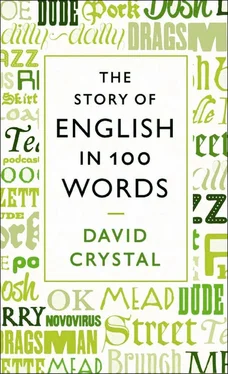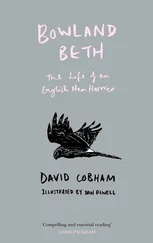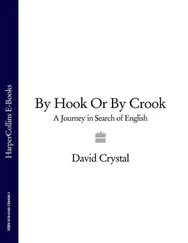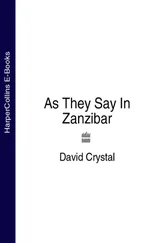In many of these cases, we have no idea who the source person was. Charlie may well have been Charlie Chaplin, but who was the original Jack or Sheila? Nobody knows. And Valentine presents a puzzle too. The feast day of 14 February commemorates two early Christian martyrs from Italy, both named Valentine. But neither of them seems to have had any obvious link with romantic love. The amorous associations first come to the fore in Geoffrey Chaucer’s poem ‘The Parliament of Fowls’, written in the early 1380s, telling the story of Nature convening an assembly where the birds choose their mates.
Humans evidently rather liked the idea, because quite soon we find a variety of activities associated with the day. A common practice was a valentine lottery: names would be written on folded pieces of paper and placed in a pot, and the pairings which were drawn out would motivate a special relationship for the coming year. As a result, the papers themselves came to be called valentines , and this led to the practice of sending paper valentines and then valentine cards. In the 19th century it became big business, with manufacturers producing highly ornate creations, adorned with lace and ribbons. Children would go from house to house on the day, asking for small gifts. The practice was called valentining .
But we can never predict the course of language change, and eventually senses of valentine developed where the romantic associations of the word were left far behind. In the 16th century, a sealed letter from the Crown to landholders demanding the arrest of lawbreakers came to be called a valentine . And in the Second World War the name was given to a 16-ton heavy infantry tank. Why? Its production was apparently given the go-ahead on 14 February 1938.
 29. Egg — a dialect choice (14th century)
29. Egg — a dialect choice (14th century)
One of the most famous words in the history of English language studies is eggs . It’s all because of William Caxton, who introduced printing to England in 1476.
Caxton was faced with a real problem. For hundreds of years, English had been written down by scribes from different parts of the country with different kinds of training. There was a huge variation in the way words were spelled. A word like might appears in manuscripts in over thirty different spellings — micht , mycht , myght , mihte and so on. Caxton had to make a choice. Which one was most likely to be most widely understood?
It wasn’t just spelling that posed a problem. People from different parts of the country used different words for the same thing — dialect variations. And this is where eggs comes in. In the prologue to one of the books Caxton printed, he tells a story he had heard about a shipful of sailors who were becalmed in the Thames estuary, and who decided to make a shore visit while they waited for the wind to pick up. One of them went into a café (as we’d call it today) and asked for some ‘eggs’, but the lady who ran the establishment didn’t understand what he wanted, and replied that she couldn’t speak French. This made the sailor angry, because he couldn’t speak French either! He just wanted ‘eggs’. Then someone else told the lady that what the sailor actually wanted was ‘eyren’. She understood that, so the sailor got his eggs.
This story sums up Caxton’s confusion. ‘Lo!’, he says, ‘what should a man in these days now write, eggs or eyren?’ And he goes on: ‘It’s hard to please every man because of diversity and change in language.’ He would have to choose one or other of these words, if he were printing a text about eggs, and which one should he go for? He was a businessman, not a linguist, and he was — understandably — confused.
Why were there two words? Eggs was a word used chiefly in the north of England at the time. It was an Old Norse word, presumably brought to England by the Viking invaders a few hundred years earlier, though it doesn’t appear in writing until the 14th century. Eyren was used in the south of England — a development of the word that the Anglo-Saxons had used. Eventually, as we now know, eyren died out and eggs became the word in everyday use.
We don’t know whether the café owner was serious, or whether she was having a joke at the expense of the hungry sailor. But the tale does illustrate well the way people were beginning to feel the need for a kind of English that would be understood throughout the country. In the egg story we see one of the origins of present-day standard English.
 30. Royal — word triplets (14th century)
30. Royal — word triplets (14th century)
Monarchs couldn’t have been regal or royal in Anglo-Saxon times. They could only have been king-like or queen-like . But during the 14th century, as part of the huge influx of vocabulary into English from French and Latin, regal and royal arrived, and along with kingly / queenly made up a cluster of words that have, rather sweetly, been called triplets .
Why did English speakers welcome these new words? All three basically mean ‘king/queen-like’, after all. Why have three words when one might do? The answer reveals something of the character of the language, for this triplet is not alone. We see the same sort of development taking place repeatedly, such as with Germanic ask , French question and Latin interrogate ; Germanic fire , French flame and Latin conflagration ; and Germanic holy , French sacred and Latin consecrated . As the examples build up, we can begin to see a pattern. The Germanic words are short and feel down-to-earth; the Latin words are long and scholarly; and the French words have a different set of associations.
It’s sometimes said that we know a word by the company it keeps. From the very beginning, regal and royal went in different directions. Regal went conceptual, used with such ‘authority’ words as throne , government and power , as well as ‘appearance’ words such as demeanour , figure and look . Royal went personal, used with ‘ancestry’ words such as blood , birth and family , as well as ‘position’ words such as princess , majesty and highness . Learnèd Latin offered an alternative mode of expression to courtly French, and both were more stately, refined and cultured than their Anglo-Saxon equivalents.
These trends are still apparent today. Regal has had relatively little development over the centuries. It still typically adds connotations of superiority or distinction. Anything regal , by implication, is ‘fit for royalty’ — hence its application to such things as cars ( Buick Regal ), whisky ( Chivas Regal ), buildings ( Regal Cinema ) and the visit from an especially magisterial great-aunt.
By contrast, royal has accumulated a huge range of uses. It’s used in relation to the activities and words of royal people ( royal charter , visit , assent , command , warrant and not forgetting the royal we — ‘We are not amused’) as well as social groups ( Royal Navy , Borough , Society ) and a host of person-related activities such as transport ( Royal Scot ), colours ( royal blue ) and cards ( royal flush ).
Читать дальше

 29. Egg — a dialect choice (14th century)
29. Egg — a dialect choice (14th century) 30. Royal — word triplets (14th century)
30. Royal — word triplets (14th century)










